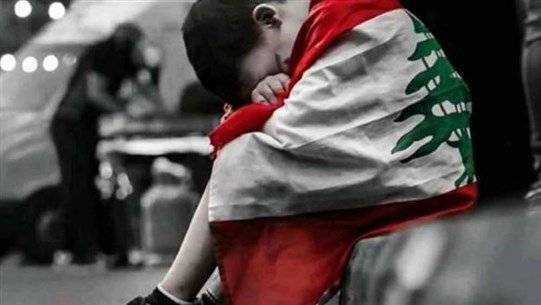The raging fires of collapse that have consumed Lebanon for the past three years have devoured all the achievements made in protecting children's rights. This vulnerable group, which needs joy and play as much as food, health, and education, has been burdened with concerns far beyond their age and capacity, losing safety even within the walls of their modest homes. According to a first-of-its-kind study conducted by UNICEF titled "The Impact of Multidimensional Poverty on Children in Lebanon: A Qualitative Overview," it is clear that children are aware of the crisis's impact on their lives and aspirations, avoiding requesting small things after sensing their families’ inability to provide them. Many have lost trust in their parents, who can no longer meet their children's needs. Congratulations to the officials for raising a generation lacking in trust and hope for their country.
Negative indicators continue to soar high, carrying with them children's hopes of emigrating from Lebanon as the only solution to escape their problems. By the numbers, UNICEF's rapid child-focused assessment revealed that:
- 84% of families do not have enough money to cover basic life necessities.
- 38% of families have reduced spending on education compared to 26% in April 2021.
- 23% of children went to bed hungry during March, April, and May.
- 60% of families reduced spending on healthcare compared to 42% in April 2022.
- 70% of families are currently covering the cost of food by accumulating unpaid bills or through direct borrowing.
The most alarming aspect of the UNICEF study released last June is not only the accelerating pace of the collapse month after month but also the indication of children's lack of trust in their homeland. The surveyed children felt that Lebanon offers them very slim chances, expressing no hope for improving their conditions except through emigration. Additionally, two-thirds of caregivers (parents) reported a decline in their children's mental health and an increase in family conflicts.
Addressing children's deprivation requires, according to UNICEF recommendations, "implementing critical economic and financial reforms." It will be important to "enhance inclusive economic recovery that supports the creation of fair and decent job opportunities." These steps should also be accompanied by expanding access to high-quality services. This means increasing funds for social services and significantly increasing social assistance for families living in extreme poverty.
Interventions also require "providing social grants to families facing specific vulnerabilities, such as the presence of elderly individuals or disabilities." According to UNICEF's representative in Lebanon, Edward Begbie, interventions require "a multi-dimensional response focused on strengthening the social protection system to ensure the basic rights of vulnerable children are protected."




